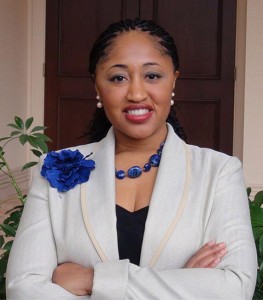 Community Matters is a biweekly opinion column. The views expressed are solely the author’s.
Community Matters is a biweekly opinion column. The views expressed are solely the author’s.
In 2020 we commemorate the centennial of women gaining the right to vote, and last month Virginia became the 38th state to ratify the Equal Rights Amendment.
It is natural to analyze how far we have come in the years between 1920 and 2020, and what should be done in the next 100 years to reach full equality.
In 1920, most white women were allowed to vote, along with select groups of non white women. Today, most women of all races enjoy the right to vote.
Over the years the number of women in elected office has increased, despite the challenges. According to the Center for American Women and Politics at Rutgers University, the number of Democratic women challenging incumbents in 2018 for the U.S. House of Representatives increased nearly 350% from 2016.
According to the National Committee on Pay Equity, in 1963, women who worked full-time, year-round made 59 cents on average for every dollar earned by men. Today, while white women earn 80 cents on the dollar of what men earn, Black women earn $0.61, Native American women earn $0.58, Latina women earn $0.53, and Asian women earn $0.85.
While I do not have data on pay equity in Arlington County, Alexandria conducted a study which found that female city employees earned 94 cents for every $1 earned by their male peers. (The article notes that it does not appear that many local governments come close to this small gap in wages.)
In Arlington, women have succeeded in political and civic leadership. Approximately 40% of the civic association presidents are women, and several women (primarily white) lead our nonprofit and business entities including Leadership Center for Excellence, Arlington Community Foundation, Arlington Chamber of Commerce, Rosslyn BID, Crystal City BID, and the Columbia Pike Revitalization Organization. At least 10 women have served on the Arlington County Board. To my knowledge, all have been white. On the School Board, at least 26 women have served, including at least three Black women and two Latina women.
Despite progress in voting rights, electoral politics, leadership and pay equity, sadly, violence against women and sexual discrimination have characterized the gender gap in the United States and across the globe, particularly in the last few years. The U.S. Department of Justice reports that approximately one in four homeless women is homeless because of violence committed against her. While I have never been a victim of sexual assault, the #MeToo movement was impactful to me because it adds a personal face to the sobering statistics.
In September 2019 I spoke to a group of university students about the “Power of Sisterhood” among women of different racial groups. One of the Black female students asked me if we are Black first, or women first.
As we celebrate the centennial of the 19th amendment here in Arlington, and I see photos of white women in traditional sashes and suffrage garb, that does not tell the full story of the fight that my Black ancestors waged for their rights. That is why it is important for me to be involved in several different centennial celebrations and portray the diverse voices of the movement. I am proud to say that the story we tell today picks up where my history books left off.
Over the next 100 years, I believe it will take all of us speaking up, and providing a space for different voices to be heard. While we definitely want to see more equality, I believe it is also an internal question. For me personally, it is an everyday feeling of being respected, heard and seen equally as both a Black person AND a woman (over the next 100 years, we should not have to choose unless we want to!) — living, playing, working, and leading, in Arlington.
Krysta Jones has lived in Arlington since 2004 and is active in local politics and civic life. This column is in no way associated with or represents any person, government, organization or body — except Krysta herself.

